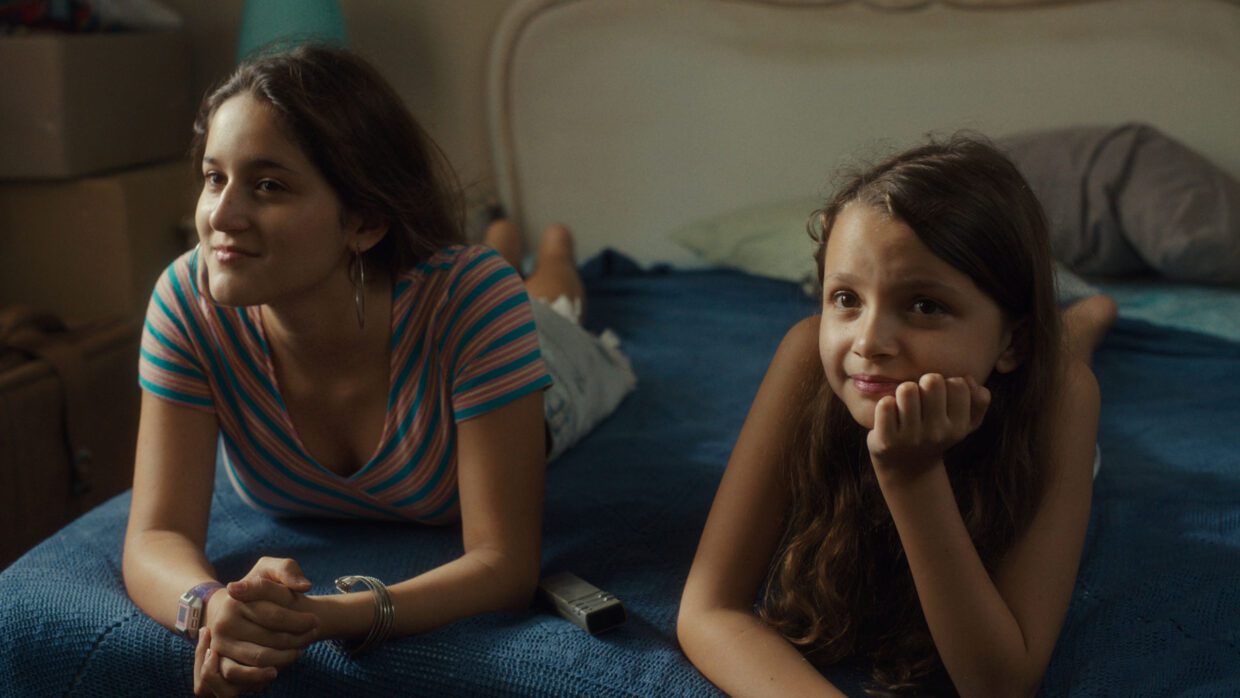 Back to selection
Back to selection
“A Fundamental Quality for the Editor is to Investigate the Director’s Unconscious”: Editor Paola Freddi on Reinas
 Luana Vega and Abril Gjurinovic appear in Reinas by Klaudia Reynicke, an official selection of the World Dramatic Competition at the 2024 Sundance Film Festival. Courtesy of Sundance Institute. Photo by Diego Romero.
Luana Vega and Abril Gjurinovic appear in Reinas by Klaudia Reynicke, an official selection of the World Dramatic Competition at the 2024 Sundance Film Festival. Courtesy of Sundance Institute. Photo by Diego Romero. In Reinas, director Klaudia Reynicke (Love Me Tender) returns to her childhood home of Lima to tell the story of a mother and her two daughters attempt to reconcile with the estranged father before seeking greener pastures in the United States.
Below, editor Paola Freddi, whose previous credits include the Venice premieres A Espera (2015) and Monica (2022), discusses her collaboration with Reynicke and how she approaches her craft.
See all responses to our annual Sundance editor interviews here.
Filmmaker: How and why did you wind up being the editor of your film? What were the factors and attributes that led to your being hired for this job?
Freddi: Simply, Klaudia is my director, and since we met, we have always worked together. For me, the relationship with my directors is fundamental. It does not stop at the artistic aspect also, because I believe that a fundamental quality for the editor is to investigate the director’s unconscious and the unfathomable in the film. This is only possible if there is an intimate relationship.
Filmmaker: In terms of advancing your film from its earliest assembly to your final cut, what were your goals as an editor?
Freddi: I am fortunate to work with authors, and Klaudia is an author. From the first cut to the 25th cut, where we then finalized the film, the goal has always been the same: to try to harmonize her artistic vision with that of all the people who have contributed to bringing the film to life. This involves seeking a balance among all these voices to powerfully narrate her world, which has then become ours as well.
Filmmaker: What elements of the film did you want to enhance, or preserve, or tease out or totally reshape?
Freddi: We closed the film in total complicity. We listen to each other, and if one of us is not satisfied it means we have to change things. What you will see is what Klaudia and I think is right for the film.
Filmmaker: How did you achieve these goals? What types of editing techniques, or processes, or feedback screenings allowed this work to occur?
Freddi: Obviously there were numerous screenings with advice that allowed us to achieve balance; however, I would also like to add that (it had never occurred to me in these terms) we also had to protect ourselves from erroneous advice that would have weakened the film. I am taking this opportunity to talk about this because I think it is important when we are about to judge the work of an author. And I go back to the first answer: We seek not to own the work with our own taste, but we help to strengthen it by respecting and enjoying the author’s point of view.
This is how masters are born: because they do not follow the rules but invent their own.
Filmmaker: As an editor, how did you come up in the business, and what influences have affected your work?
Freddi: I went to DAMS University of Cinema and then did a proper film school where the first year they gave you the opportunity to play almost every role on a set. Right away, I knew editing was my path, the one where I was most suited. In truth, nobody can teach you the job. It’s something you have inside. Since I was young, when I was daydreaming, I would edit and re-edit my dreams until I found them perfect, thus spending more time editing them than dreaming them.
Filmmaker: What editing system did you use, and why?
Freddi: I’ve been using Avid for so many years now.
Filmmaker: Finally, now that the process is over, what new meanings has the film taken on for you? What did you discover in the footage that you might not have seen initially, and how does your final understanding of the film differ from the understanding that you began with?
Freddi: Undoubtedly, Reinas is a choral film, but only in editing with Klaudia did we realize how crucial the figure of the father was in conveying emotions. In this sense, we also changed the beginning of the film.
